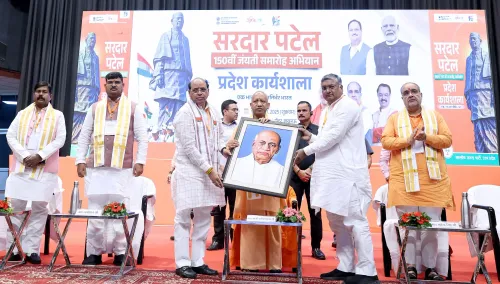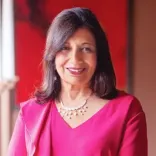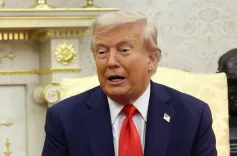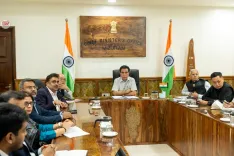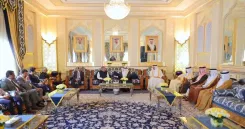Will PM Modi Lead BRICS Through Geopolitical Challenges?

Synopsis
Key Takeaways
- PM Modi's leadership is critical for steering BRICS towards economic cooperation.
- Key geopolitical issues will be addressed, including US tariffs and global health.
- India's moderating influence is essential to counterbalance the political leanings of China and Russia.
- New member countries like Iran and Indonesia highlight BRICS's expanding influence.
- Discussions on AI and climate change will shape future governance.
Rio de Janeiro, July 6 (NationPress) Prime Minister Narendra Modi will play a pivotal role at the upcoming BRICS Summit in Rio de Janeiro, beginning this Sunday. The summit aims to navigate the intricate geopolitics and global economic challenges currently faced by member nations.
Having arrived on Saturday, PM Modi and Brazilian President Luiz Inácio Lula da Silva are expected to guide BRICS back towards its foundational goals of economic collaboration and growth, steering clear of the political direction championed by China and Russia, which often carries an anti-Western sentiment.
Notably absent from the summit are Russian President Vladimir Putin and Chinese President Xi Jinping, who have previously advocated for a more politically charged BRICS. Reports from the Russian news agency Tass indicate that Putin will address the gathering via video link, while Xi will send Prime Minister Li Qiang in his stead.
As the representative of the second-largest economy and most populous nation within BRICS, PM Modi is scheduled to take over the leadership role from da Silva next year, influencing the direction of BRICS in alignment with India's priorities.
On key contentious topics, India is expected to advocate for a balanced approach, as demonstrated during the recent Shanghai Cooperation Organisation meeting, where it declined to support a statement denouncing Israel. Such moderation will likely be a focal point for BRICS discussions.
The summit is anticipated to address the ongoing US tariff conflict, with leaders striving to formulate a consensus statement. While some members may advocate for a condemnation of unilateral coercive measures—specifically aimed at the US—it's probable that, under India's influence, the outcome will consist of expressions of concern without explicitly naming any nation.
Amid delicate trade negotiations with the US, it would be unwise for India to align with the narratives of China and Russia, especially given Beijing's ambitions for regional dominance.
Regarding the conflict in Iran and the Gaza War, the final statement is likely to reflect concern rather than outright condemnation. A previous BRICS statement on Iran in May was softened to secure India's participation.
Iran, which joined BRICS last year, will be represented by Foreign Minister Abbas Araghchi, following the withdrawal of President Masoud Pezeshkian.
Brazil’s leadership theme emphasizes Strengthening Global South Cooperation for more inclusive and sustainable governance, a priority that will shape summit discussions. The implications of artificial intelligence, which is becoming a transformative global force while also presenting new vulnerabilities, will be a key focus.
As Brazil prepares to host the upcoming United Nations climate change conference in November, this topic will also be significant at the summit.
Other agenda items will include global health cooperation, trade, investments, and finance.
Prabowo Subianto, the president of Indonesia, will represent his nation at its first BRICS summit following its accession this year.
Initially comprised of Brazil, Russia, India, and China since 2006, BRICS has expanded to include South Africa in 2011, and more recently Egypt, Ethiopia, Iran, the United Arab Emirates, and Indonesia.
BRICS also recognizes a category of partner countries, which, while not full members, actively participate in some summit activities. These include Belarus, Bolivia, Kazakhstan, Cuba, Malaysia, Thailand, Uganda, Uzbekistan, Nigeria, and Vietnam.
Several nations have expressed interest in joining BRICS, including Bangladesh, Sri Lanka, Pakistan, Venezuela, Myanmar, and Senegal. India's moderating influence was evident in its rejection of proposals for a BRICS currency for trade, which could have been exploited by China.
Former President Donald Trump has cautioned BRICS against pursuing such a currency as a dollar alternative, warning of severe repercussions.
India's refusal of this proposal illustrates its commitment to countering the anti-Western trends that have already led to the departure of at least two BRICS members. Following the election of Javier Milei, an ally of Trump, as president, Argentina abandoned its BRICS membership plans due to its new administration's disapproval of the group's direction.
Saudi Arabia, which was also invited to join BRICS last year, has yet to formally respond.

